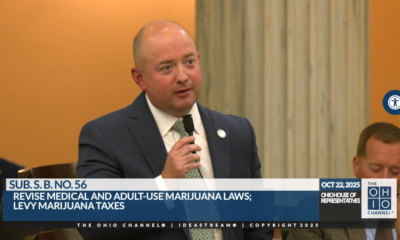Tilray Brands Inc. (NASDAQ: TLRY) announced Monday that its German subsidiary has received the country’s first new cannabis cultivation license under recently updated regulations, paving a path for its expansion in Europe’s largest economy.
The license, which was given to Tilray’s Aphria RX facility, allows cultivation and manufacture of “a broad commercial range of medical cannabis,” the company said in a statement. This comes as Germany sees growing demand for medical marijuana, following legislative changes earlier this year opening up access to the coveted market.
“We are thrilled to receive this license as it will provide greater access to some of the highest quality medical cannabis produced in Germany and enable us to expand the range of treatment options available to patients,” Denise Faltischek, Tilray’s chief strategy officer, said in a statement.
According to Tilray, the new license allows Aphria RX to increase production capacity about fivefold and expand from three to 31 approved cannabis strains. The company noted that the facility was designed with input from Kevin Anderson, described as a “renowned cannabis grower” from Broken Coast Cannabis. Tilray acquired Broken Coast in 2018 for $217 million when it was still operating as Aphria.
Tilray has maintained a presence in Germany since at least 2019, when Aphria RX was first awarded a cultivation license by the German Federal Institute for Drugs and Medical Devices. The company says that early entry has situated the firm as a key player in what is widely considered one of Europe’s most promising medical cannabis markets. The country in February passed the MedCan-G Bill, which Tilray lately credits with driving higher patient numbers and prescriber participation in the program.
While Tilray didn’t provide specific financial projections related to the new license, the company said it is “well-positioned to take full advantage of the market opportunity.”
Still, the growth trajectory of Germany’s cannabis market remains a subject of debate within the industry. In recent months, some companies have tempered expectations for rapid expansion. Aurora Cannabis CEO Miguel Martin, for instance, suggested in a June earnings call that growth might be more modest, projecting “20% to 30% annually at a minimum” rather than the doubling some had predicted.
Martin cited Germany’s traditional pharmaceutical model for cannabis distribution.
“In Germany, it is a relationship – as it is with other medical products – between a prescribing physician who’s prescribing a specific product at a specific dosage,” he explained. “And then the patient is getting it fulfilled out of pharmacy.”

 California Cannabis Updates1 year ago
California Cannabis Updates1 year ago
 Breaking News1 year ago
Breaking News1 year ago
 best list1 year ago
best list1 year ago
 Business1 year ago
Business1 year ago
 Business1 year ago
Business1 year ago
 cbd1 year ago
cbd1 year ago
 Bay Smokes1 year ago
Bay Smokes1 year ago
 autoflower seeds1 year ago
autoflower seeds1 year ago










































